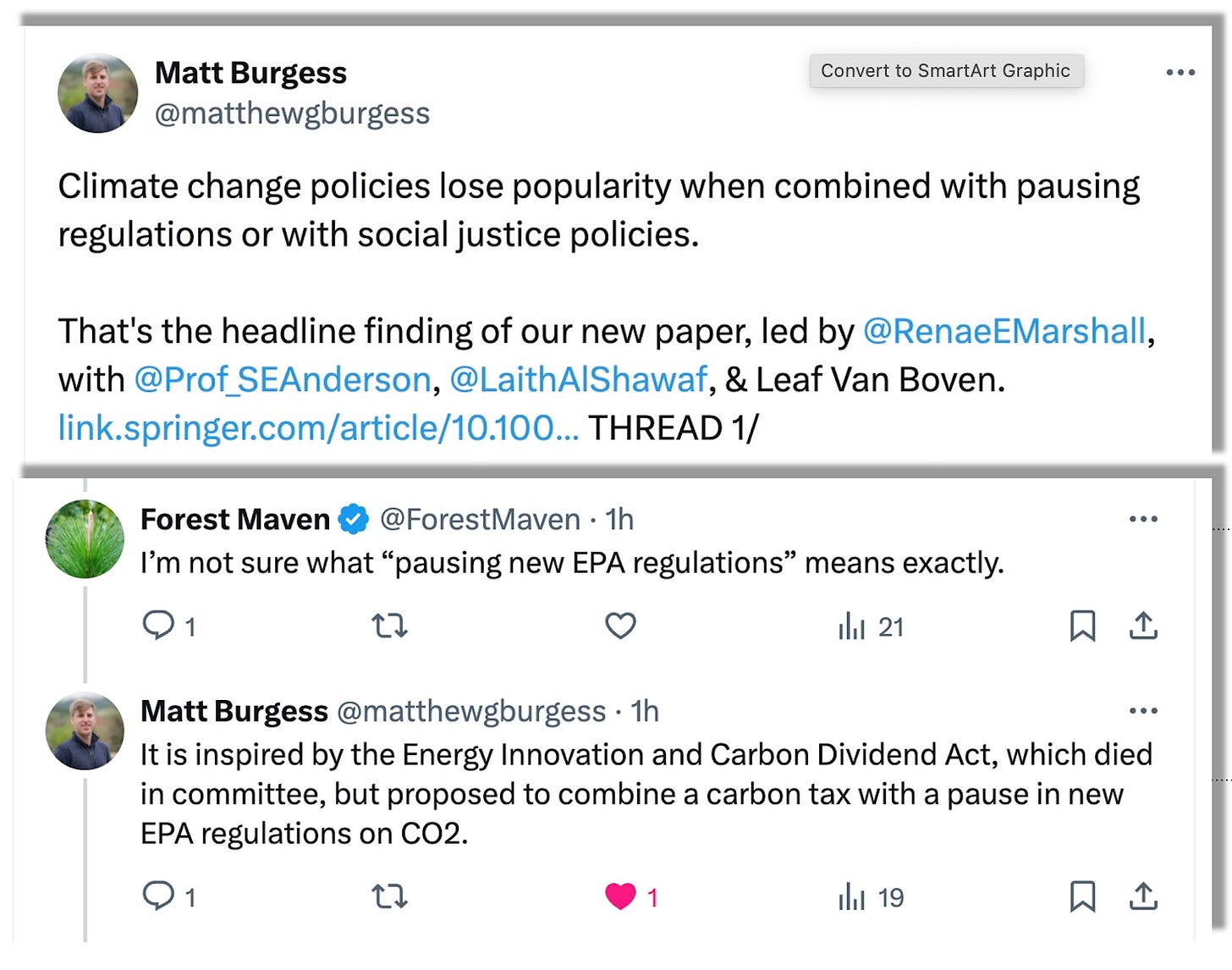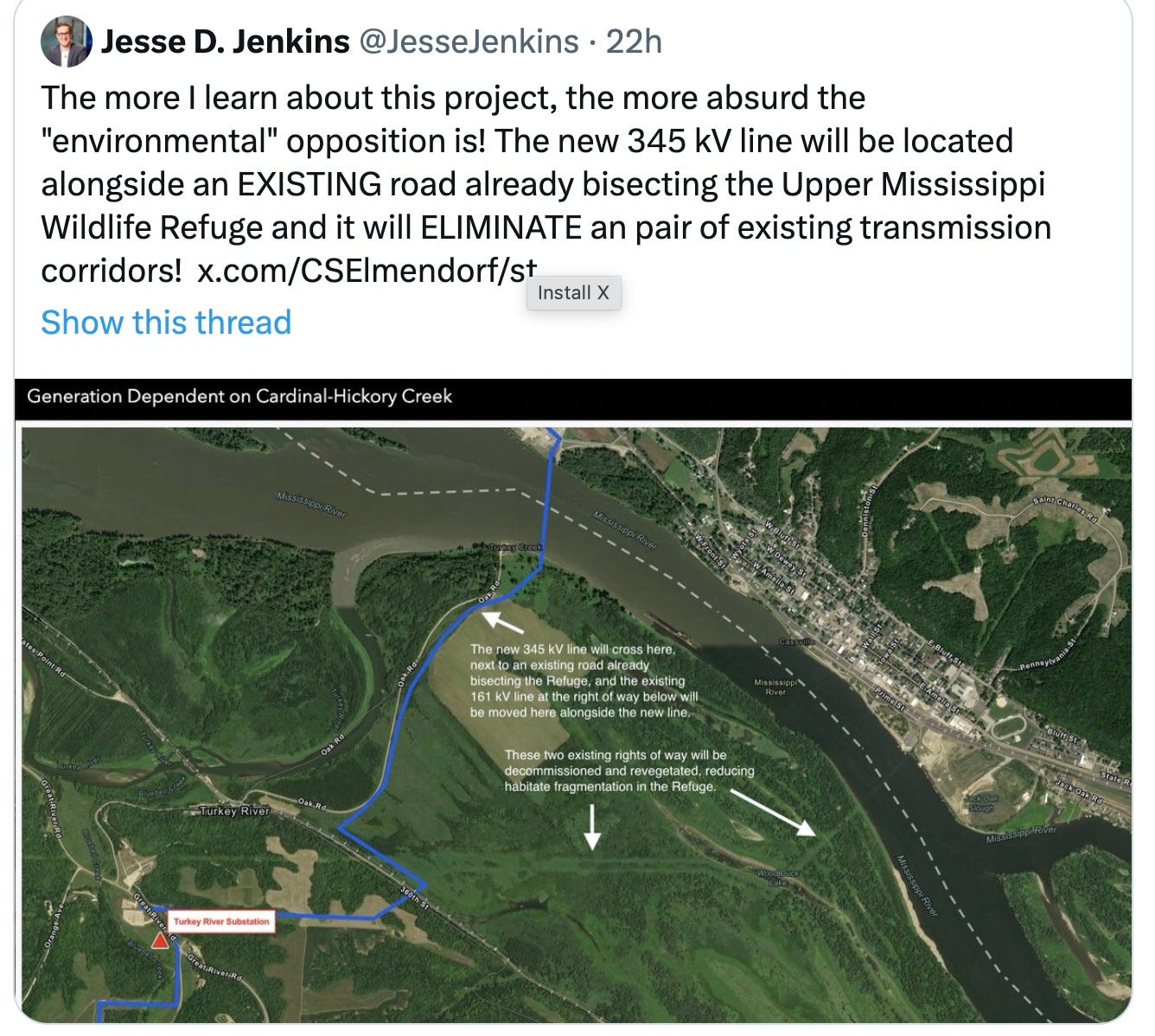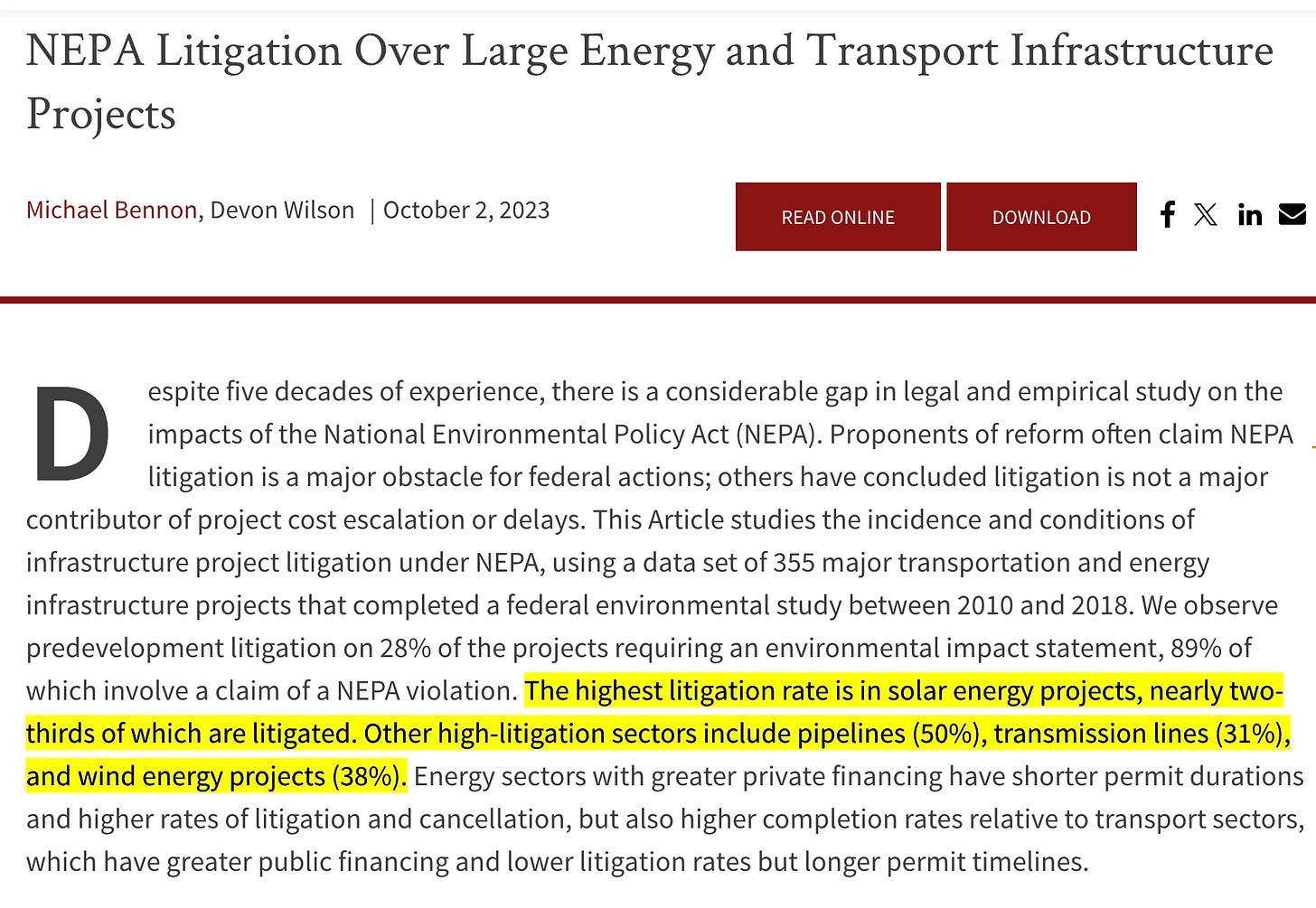Study: Sweetening climate policies with add-ons designed to engage liberals or conservatives can kick back
A guest post summarizing a new study questioning the merits of a popular strategy in climate politics and policy
I plumb X/Twitter so that you don’t have to.
The guest post below is an expansion of a fascinating X/Twitter thread by
, an assistant professor of environmental studies and director of the Center for Social and Environmental Futures at the University of Colorado Boulder. (Yes, further proof X/Twitter still matters, as I’ve written and written and written..)
He’s an occasional Substacker at Guided Civic Revival, and I particuarly encourage you to explore this post:
Here’s Matt Burgess’s expanded thread:
Climate change policies lose popularity when combined with pausing regulations or with social justice policies.
That's the headline finding of our new paper, led by Renae Marshall, who is a PhD candidate at the University of California Santa Barbara, and was formerly an undergraduate student of mine at the University of Colorado Boulder.
We conducted an experiment with a nationally representative sample of 2,521 US adults. Some were asked to rate their support for climate policies alone; others saw climate policies paired with one of four types of other policies. All policies were based on real recent proposals, which are summarized in the table below.

Pairing with infrastructure and economic redistribution did not change support. Pairing with pausing regulations and social justice lost support. The figure below summarizes these main results, showing how support for the different bundling treatments compared with support for climate policies alone, along different parts of the political spectrum.

Our results seem to provide an example of negativity bias, a well-known phenomenon in psychology. When we pair climate with pausing regulations to win conservatives, they don't move, but we lose moderates & liberals. When we pair with social justice to please liberals, they don't move, but we lose moderates & conservatives.
Our results don't necessarily mean that bundling never increases support. For example, a 2020 paper by Parrish Bergquist, Matto Mildenberger, and Leah Stokes found that bundling with some policies similar to our 'economic redistribution' treatment increased support. In their study, support with Democrats went up for those policies while Republican support didn't move. Our results with economic redistribution actually show a similar pattern (see figure above), but it is not statistically significant. So, economically progressive policies may work as a bundle with climate change policies.
An earlier study by Micah English and Joshua Kalla found that climate policies (and other types of policies) are less supported when framed racially compared to when framed in class terms. This is complementary to our social justice result.
My best guess as to why our bundles fared differently from each other is that the median US voter leans left economically & right socially. This makes constituencies for social justice (socially left) & pausing regulation (economically right) smaller.

Our results do not imply that climate policies should never be combined with pausing regulation or social justice. For example, there are serious environmental racial inequalities, even when controlling for class and urban/rural location. There are also major needs for cutting red tape to address climate change, if we’re serious about achieving a fast transition. I and some of my coauthors have written about this before.
Nonetheless, our results suggest that bundling climate policies with social justice or pausing regulation might come at a political cost with the public. This is something policymakers and advocates should be aware of, so that they can weigh these costs against any potential benefits.
I encourage you, if you dare, to explore his X post, which is generating good reactions leading to more people studying ways to make climate policy and to make it stick.
It’s the litigation, not just the regulation
Jesse Jenkins at Princeton has an equally valuable thread on an awful situation in which litigation by environmental groups is holding up a worthwhile and heavily vetted electricity transmission project.
As I wrote in reposting his thread, “Boy does this case appear to undercut arguments of those contending #NEPA doesn't need some significant changes - a k a permiting reform. It's obviously not the sole reason so many renewable energy buildouts are stalled but it sure is a significant one.”
But I was led by a reply from Sharon Friedman (@forestmaven on X, the editor of The Smokey Wire) to a recent study showing how the impediments to such projects are more from the flood of litigation around energy and transportation infrastructure than the regulatory stepladder itself. The paper, by Stanford’s Michael Bennon and Devon Wilson, is: “NEPA Litigation Over Large Energy and Transport Infrastructure Projects.”
Read it and consider which environmental organizations you support. This passage is mindblowing:
We observe predevelopment litigation on 28% of the projects requiring an environmental impact statement, 89% of which involve a claim of a NEPA violation. The highest litigation rate is in solar energy projects, nearly two-thirds of which are litigated. Other high-litigation sectors include pipelines (50%), transmission lines (31%), and wind energy projects (38%).
More from the Sustain What archives:
When Climate Action Meets Energy Friction: Why Permitting Reform is Easier Sought than Done
Listen to this Sustain What webcast on these issues with Representative Sean Casten of Illinois and a batch of experts with mining journalist Jael Holzman:








